Famous Czechs – Olbram Zoubek
Olbram Zoubek is not a name that will crop up in many guidebooks. He has certainly left his mark on the country and one town specifically (and it’s not Prague) but tourists will wander past at least two of his public works in Prague without realising. Olbram Zoubek was born in Prague in 1926 and was educated in Prague. Although later he had his application rejected by the Prague Academy of Fine Arts he was accepted by the Academy of Applied Arts, Architecture and Design where he trained as a sculptor and graduated in 1952.
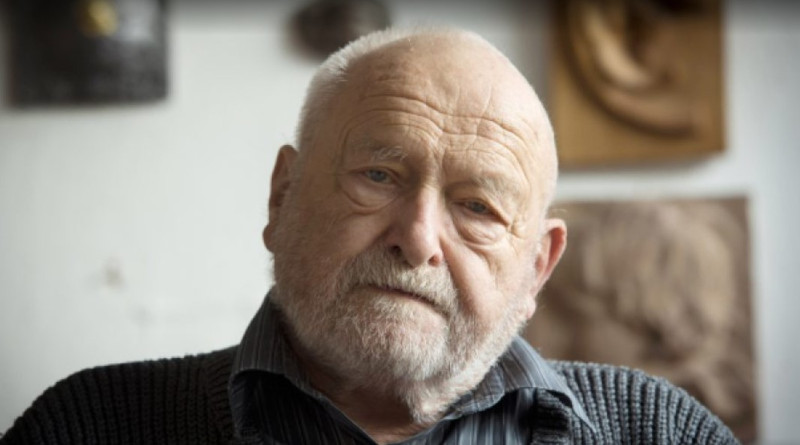
1950s and 1960s Prague
In the 1950s the communists were consolidating their position of power in the country. The sham trials and executions of the 1950s would have been fresh in the mind and Olbram Zoubek (still in his 20s) seemed to have accepted that which he could not change. His work became included in Prague galleries and other cities as he made his way in the world. The 1960s were very different. Stalin’s influence over the country and it’s hardline communism had reduced. More social and artistic freedoms were allowed and people were thinking that some kind of socialist democracy was returning. This ended in 1968 with the Prague Spring.
1969
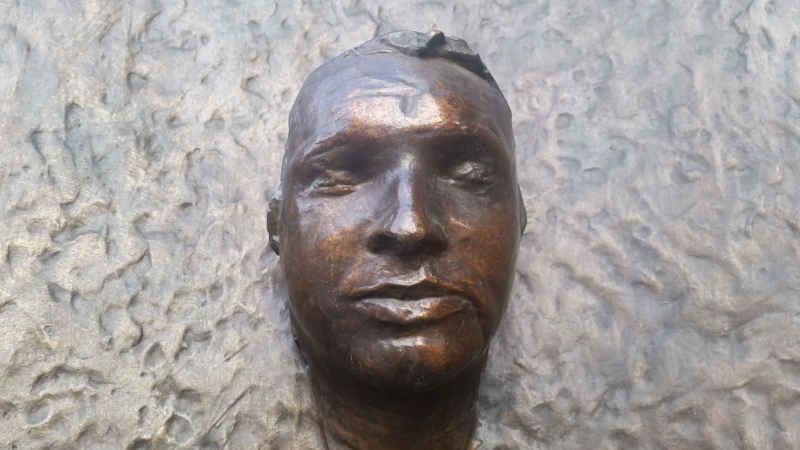
The event most associated with Olbram Zoubek was the death of a philosophy student called Jan Palach who had self-immolated on January 16th 1969. On the day Jan Palach died, January 19th 1969, the 42 year-old Olbram Zoubek was smuggled into the hospital in order to make a death mask of the 20 year-old Jan Palach. This seems to have been a watershed moment for Olbram Zoubek and his relationship with the post-1968 Prague regime.
1970s
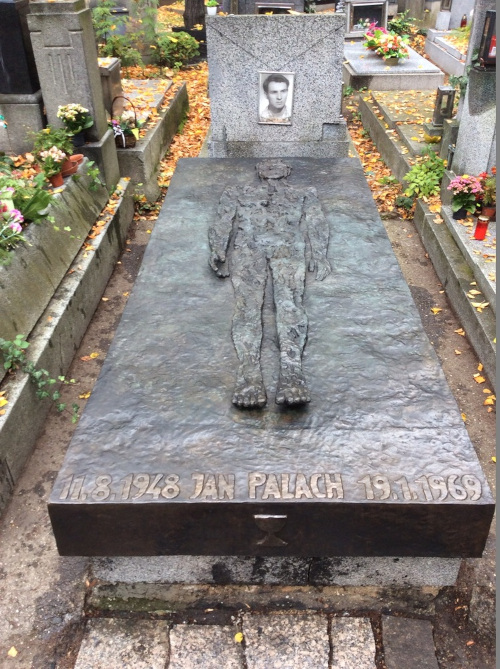
The 1970s was all about something called “normalisation” when the post-1968 governments sought to “correct” how people lived and explain the “errors” of their ways. Olbram Zoubek’s death mask had clearly labelled him as a subversive in the eyes of the communists. His 1970 work to create a bronze tombstone for the grave of Jan Palach reinforced it (the communists moved the body of Jan Palach and destroyed the tombstone, what you see now is a copy from 1990 made from the original mould). This is reflected in how his work was exhibited as between 1969 and 1980 little of his work was being shown and he received only a small number of private commissions. In 1974 Olbram Zoubek began to work at the Litomyšl Castle where he would begin a 17 year process of restoring the Renaissance sgraffito facade (Olbram Zoubek is still listed as an honorary resident of the town). It’s in this period that we begin to see his iconic “thin woman” sculptures and his “broken” men. Litomyšl still has the largest collection of Olbram Zoubek works.
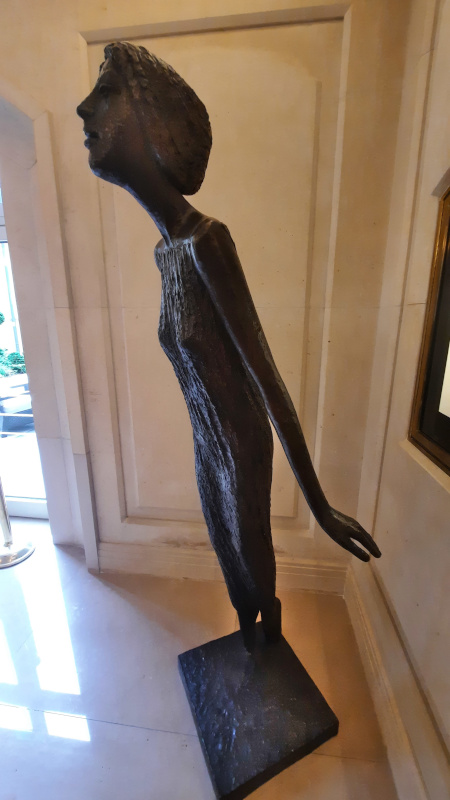
1980s
By 1980 Olbram Zoubek in the eyes of the communists was “rehabilitated” i.e. he was not a political problem and as such you begin to see not only group exhibitions but also solo exhibitions of his work mostly in Prague and Litomyšl. He gets really popular after the ejection of the communist regime in 1989 with a string of commissions both private and public. Many were designed to be art. Others were more symbolic.
2000s
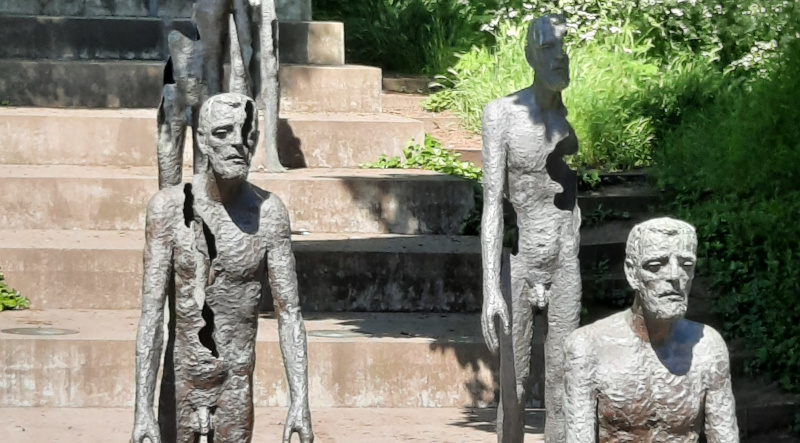
In 2002, along with two other artists, he created the Monument to the Victims of Communism. Basically it’s the “broken” man style that he had first explored in 1986 but it’s on the tourist map in Prague. For the next 15 years he averaged a piece every two years or so, mostly located in educational facilities around the country. His last piece was called “Eve” completed the year he died, 2017, aged 91.
Something Related or a Few Minutes Away
Memorials – Victims of Communism
Famous Czechs – President Vaclav Havel
Politics and History – Charter 77
Politics and History – The 1948 Communist Coup